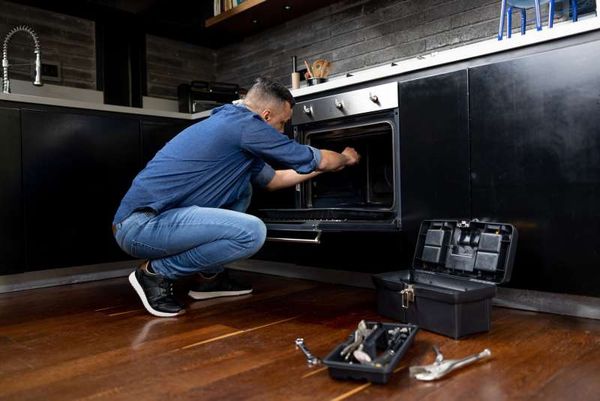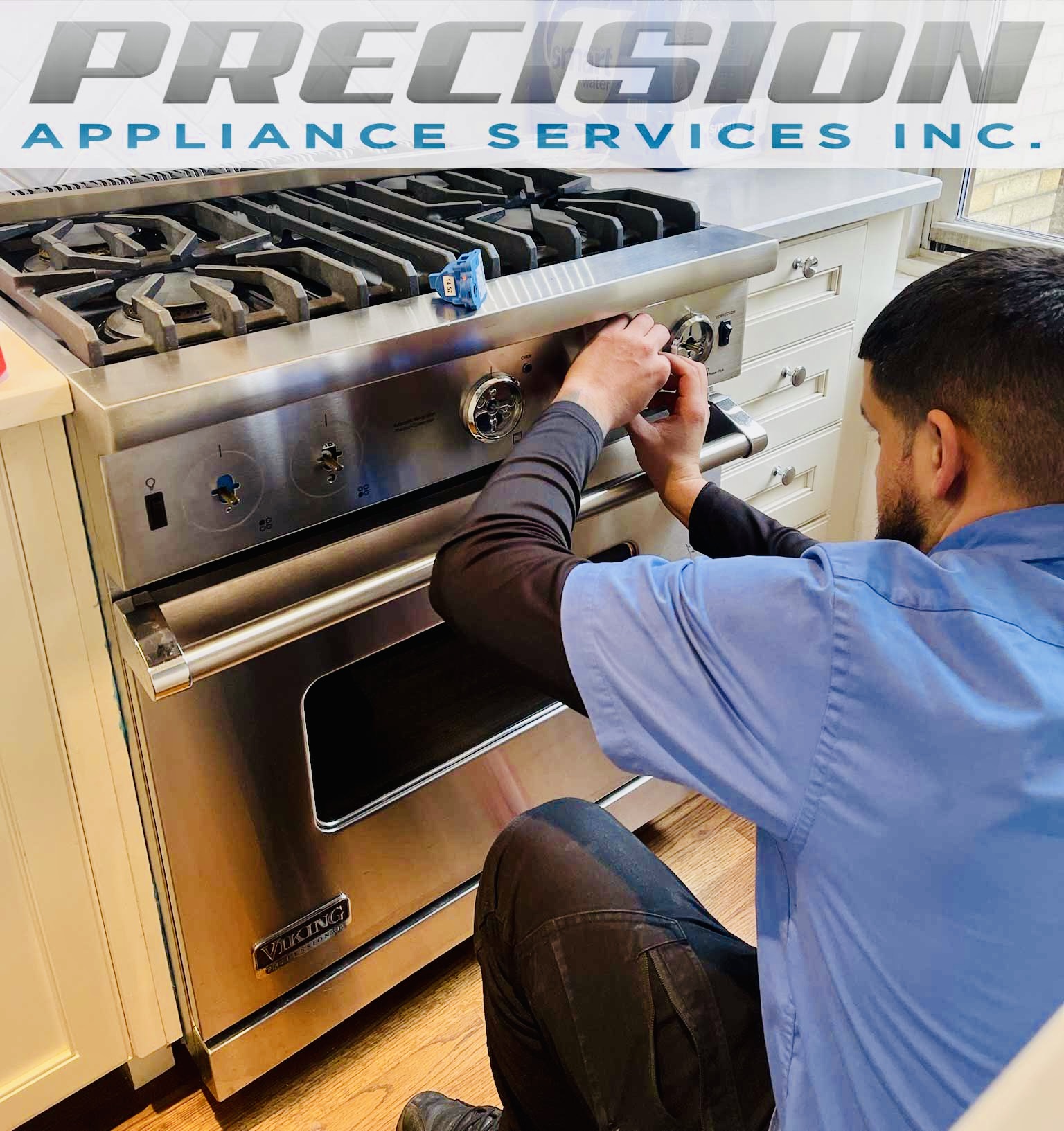The Ultimate Overview to Recognizing Appliance Repair Work at Home
When your refrigerator quits cooling down or your oven rejects to heat, it can feel frustrating. Comprehending appliance repair work in your home can save you money and time. You'll learn to recognize signs, make use of vital devices, and follow an organized troubleshooting procedure. Yet before you start, there are important safety and security precautions you require to consider. What are the most usual troubles, and how can you fix them? Allow's explore the fundamentals.
Typical Device Issues and Their Signs
When your home appliances start acting up, it's important to acknowledge the signs early on. Overlooking them can lead to bigger concerns and costly repair work. If your fridge isn't cooling down effectively, you could discover warm areas or condensation creating. This might show a failing compressor or a blocked vent.Your dishwasher may show troubles via dirty dishes or unusual sounds during cycles. If you hear grinding or clanking, it's time to investigate.A washing device that will not rotate or drain pipes can leave you with soggy washing, recommending a stopped up drain or a malfunctioning pump.Lastly, if your oven's temperature level seems off or it takes permanently to preheat, you may be handling a damaged thermostat. By remaining sharp to these signs and symptoms, you can address concerns prior to they intensify into significant repairs.
Crucial Devices for Device Repair
When you're tackling home appliance repair services in your home, having the right devices is necessary. Basic hand devices like screwdrivers and pliers will certainly assist you disassemble and take care of various home appliances, while electrical screening devices assure you're functioning securely with wiring. Let's go over what you need to start on your repair service trip.
Fundamental Hand Devices
Having the right devices is crucial for effective home appliance repair in the house. Beginning with a trusted screwdriver set, consisting of both flathead and Phillips types, as screws are common in home appliance assembly. Pliers are additionally crucial; they help with gripping, turning, and reducing cords or small components. A pair of needle-nose pliers can get to difficult situations quickly. You'll need a great adjustable wrench for tightening up or loosening nuts and screws. An utility knife is helpful for puncturing product packaging or insulation. Don't fail to remember a strong workbench or surface to safely organize your devices and parts. With these fundamental hand devices, you'll be well-prepared to deal with most device repairs that come your way.
Electrical Testing Devices
Together with fundamental hand tools, electrical screening gadgets play a crucial function in device repair service. These tools assist you diagnose electrical problems and warranty appliances work securely. A multimeter is essential; it gauges voltage, existing, and resistance, allowing you to identify issues promptly. A non-contact voltage tester is one more essential, allowing you spot real-time cords without making straight call, improving your safety. Secure meters are fantastic for determining current circulation in cords without separating them, saving you effort and time. Additionally, circuit testers can quickly inspect if outlets are working correctly. By utilizing these devices, you'll improve your troubleshooting procedure and boost your fixing skills, making home appliance upkeep a lot easier.
Step-by-Step Overview to Diagnosing Device Issues
When your device breaks down, it can be discouraging, however identifying the problem does not need to be overwhelming. You'll find out to recognize typical issues and apply reliable fixing methods. Allow's stroll with the actions to get your appliance back in working order.
Common Home Appliance Problems

Repairing Methods Clarified

Fixing Significant Cooking Area Devices: A Closer Look
Have you ever wondered how to tackle typical concerns with your cooking area devices? Fixing major kitchen area appliances like refrigerators, stoves, and dishwashing machines can be less complicated than you assume. Start by recognizing the problem-- whether it's a fridge not cooling down or a stove that will not warm. Commonly, a simple reset or inspecting the source of power can address the issue.For fridges, clean the condenser coils and inspect the door seals. If your oven's not home heating, check the heating aspect and thermostat. Dish washers might just require a tidy filter or a reset to get them back at work. Always unplug the home appliance prior to diving into fixings to ensure your safety.Don' t forget to get in touch with the user manual for certain repairing pointers connected to your design. With a little bit of perseverance and the right tools, you can confidently take on appliance repairs and conserve cash while doing so!

Troubleshooting Laundry Devices: Tips and Techniques
When your laundry appliances start acting up, it can feel frustrating, yet repairing them does not have to be an inconvenience. Beginning by checking the power supply. Confirm the home appliance is connected in and the outlet is working. Next, examine the door or cover switch; a damaged button can protect against the machine from operating.For washing machines, if it's not rotating, look for out of balance lots. Rearranging the garments could solve the concern. If your clothes dryer isn't home heating, clean the lint filter and examine the vent for blockages.Listen for uncommon sounds; they can indicate an issue. If your appliance is leaking, check the hose pipes for cracks or loose links. File any kind of mistake codes displayed on digital displays, as they can direct you in identifying the issue. Ultimately, get in touch with the individual manual for specific repairing tips related to your version.
Safety And Security Preventative Measures to Take Throughout Fixes
Before you start any kind of home appliance fixings, it's vital to prioritize security to stop accidents or injuries. Initially, unplug the device or switch off the breaker to ensure no power reaches it while you work. Usage protected tools to lessen the risk of electric shock. Put on security goggles and handwear covers to safeguard on your own from sharp edges or debris (Washer dryer repair service Dependable Refrigeration).Make specific your work area is clean and well-lit, so you can see what you're doing. Maintain children and pet dogs far from the area to stay clear of disturbances and prospective threats. If you're handling gas home appliances, be added mindful; look for leakages prior to proceeding.Take your time, and do not hurry via repairs. If you really feel unpredictable regarding any type of step, it's much better to pause and study than to guess. Following these safety measures will assist produce a much safer atmosphere for your do it yourself device fixing task
When to Call a Specialist for Aid
How do you know if it's time to call a professional for home appliance fixings? If you've tried standard troubleshooting without success, it's a clear sign. If your home appliance still won't begin or reveals uncommon sounds after resetting it, don't be reluctant to seek professional help.When you discover leaks, smoke, or burning smells, focus on safety and security and call a professional instantly. These issues can cause even more significant damages or present dangers to your home.Also, if your home appliance is under service warranty, contacting an expert is usually the best path. They can assure that fixings will not nullify your service warranty, saving you cash in the long run.Finally, if you're uncertain or uncomfortable with intricate repair services, it's smart to leave it to the specialists. Remember, taking on read more complex concerns without the best competence can result in costly errors. Trust an expert when doubtful!
Regularly Asked Concerns
How Can I Stop Appliance Issues in the Future?
To protect against appliance problems in the future, you should do normal maintenance, check for damage, clean filters, and prevent overloading. Remaining proactive will assist expand their life expectancy and maintain them running efficiently.
What Are the Most Typical DIY Appliance Fixing Mistakes?
You could ignore safety precautions, skip fixing steps, or utilize inaccurate tools when attempting DIY appliance repair work. Hurrying the procedure or neglecting maker guidelines can cause even more significant problems and costly errors. Keep client and notified!
Exactly how Do I Know if a Component Needs Replacement?
You can inform if a component requires replacement by looking for uncommon sounds, leakages, or irregular efficiency. If the home appliance battles to operate appropriately or shows visible damage, it's likely time for a replacement.
Can I Make Use Of Generic Parts for Appliance Repair Works?
Yes, you can use generic components for home appliance repairs, however identify they're suitable - Washer dryer repair service Dependable Refrigeration. Common parts could conserve you money, but they could impact efficiency or long life, so weigh your alternatives carefully before choosing
What Service Warranties Cover Device Repairs?
Most device warranties cover repair services for producing problems, but they frequently leave out damages from abuse. Check your warranty terms meticulously, as some could call for using qualified service technicians and original components for coverage to continue to be legitimate.